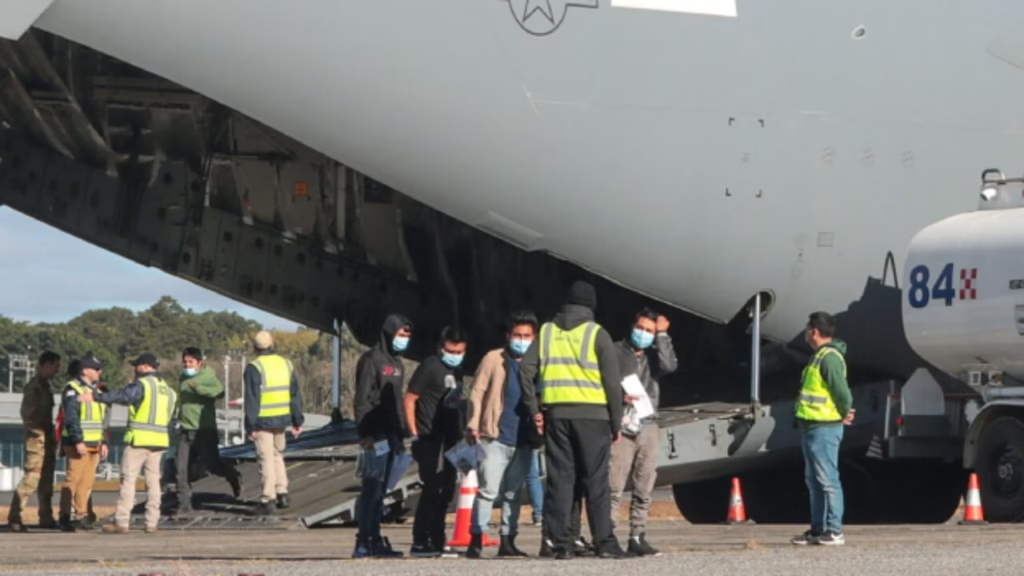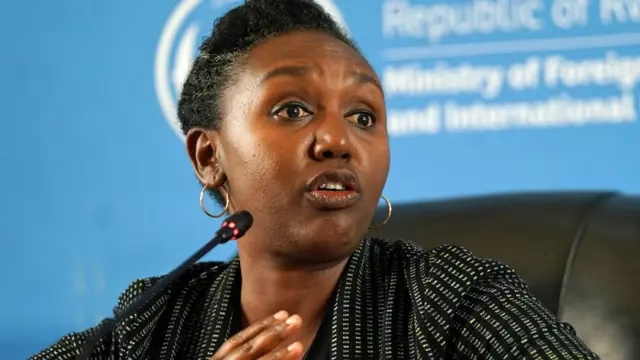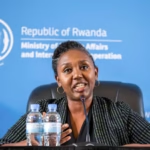Seven migrants deported from the United States have arrived in Rwanda—marking the first arrivals under a controversial deal between Kigali and the administration of US President Donald Trump. The agreement is expected to see up to 250 migrants relocated to the East African nation.
Rwandan government spokesperson Yolande Makolo confirmed that the “first group of seven vetted migrants arrived in Rwanda in mid-August.” She declined to reveal their nationalities but stated that four would remain in Rwanda, while the remaining three had chosen to return to their countries of origin.
Rights organizations have expressed concern that such deportations may breach international law, particularly if individuals are sent to places where they risk torture or other forms of abuse.
Since beginning his second term in January, President Trump has intensified efforts to implement a sweeping mass deportation plan targeting undocumented migrants. At least a dozen countries have agreed to accept migrants deported from the US as part of this broader initiative.
Despite international criticism over Rwanda’s human rights record, Ms. Makolo said that “regardless of their specific needs, all of these individuals will receive appropriate support and protection from the Rwandan government.” She made the statement in an interview with The New Times, a pro-government newspaper in Rwanda.

The deported migrants are currently being accommodated by an international organization, with support from both the International Organization for Migration (IOM) and Rwandan social services. An IOM spokesperson confirmed that they had assessed the migrants’ basic needs but did not provide further details.
Earlier this month, Makolo told the BBC that Rwanda was committed to helping migrants, noting that “nearly every Rwandan family has experienced the hardships of displacement.” Rwanda itself endured a devastating genocide in the mid-1990s, and the government has since positioned the country as a potential safe haven for those in need.
This is not Rwanda’s first experience hosting relocated migrants. Between September 2019 and April 2025, under a joint agreement with the UN refugee agency and the African Union, nearly 3,000 refugees and asylum seekers were evacuated from Libya to Rwanda. Many have since been resettled in third countries, according to the UN.
Rwanda also signed a controversial agreement with the UK’s Conservative government in 2022 to receive asylum seekers. However, the plan—heavily criticized and repeatedly challenged in court—was ultimately scrapped in 2024 after the Labour government under Sir Keir Starmer came to power. Despite the cancellation, the UK had already paid Rwanda £240 million ($310 million) and funded the construction of facilities for the migrants. The current use of those facilities remains unclear.
It is also unknown whether Rwanda’s latest agreement with the US includes any financial compensation.
Meanwhile, relations between Rwanda and the Democratic Republic of Congo (DRC) remain tense. In June, Trump’s administration brokered a peace deal in Washington between the two nations as part of a broader initiative to stabilize the region after decades of conflict. However, accusations persist that Kigali is backing the M23 rebel group involved in ongoing violence in eastern DRC—an allegation Rwanda denies.



